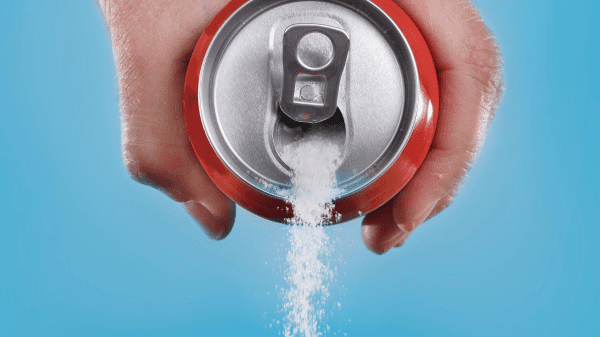
In their video Week in Review for May 12, my colleagues Greg Johnson and Pamela Riemenschneider discuss an op-ed piece by Sen. Marco Rubio (R-FL) in The Wall Street Journal saying he would introduce a measure to remove benefits for junk food from the federal Supplemental Nutritional Assistance Program (SNAP, that is, food stamps).
Senator Marco Rubio calls for end to SNAP junk food subsidies – Produce Blue Book
As my colleagues say, this is merely an op-ed piece. Whether anything will ever come of it is a moot point.
Nonetheless, I think it is a sign that the sentiments in both political parties are shifting dramatically. By now it is clear beyond doubt that widespread malnutrition among the American population, including obesity, is (along with mental illness) the single largest public health concern today. This problem is directly and provably connected to huge consumption of junk food and fast food.
I believe that the coming years will see a prolonged campaign in both parties and in broad swaths of society to create obstacles to purchasing such foods.
I think of the campaign against smoking in the 1960s. It began in earnest in 1964, when the surgeon general publicly stated that what everybody already knew: cigarette smoking is harmful to health. It and later reports “transformed the issue from one of individual and consumer choice, to one of epidemiology, public health, and risk for smokers and non-smokers alike.”
Subsequent years saw increased taxes on tobacco products and a ban on cigarette advertising on TV, among countless other measures.
Since we now know that junk food is at least as harmful as smoking was 60 years ago, we can expect increased efforts to penalize and limit its purchase. Rubio’s call is really only the start, but his proposal about food stamps will very likely be enacted in some form—if not this year, then next year or the one after that. We are likely to see further measures in the future.
My colleagues also discuss the attitude of the produce industry toward such measures, observing that at this point, it has avoided direct confrontation with junk food manufacturers. Certainly there is wisdom to this approach (my personal Eleventh Commandment: “Thou shalt not make unnecessary enemies”). I’m not politically savvy enough to suggest how the produce industry might take best advantage of this trend, but I think it is inevitable. Eventually it will benefit not only fruit and vegetable producers but the health of Americans overall.
In their video Week in Review for May 12, my colleagues Greg Johnson and Pamela Riemenschneider discuss an op-ed piece by Sen. Marco Rubio (R-FL) in The Wall Street Journal saying he would introduce a measure to remove benefits for junk food from the federal Supplemental Nutritional Assistance Program (SNAP, that is, food stamps).
Senator Marco Rubio calls for end to SNAP junk food subsidies – Produce Blue Book
As my colleagues say, this is merely an op-ed piece. Whether anything will ever come of it is a moot point.
Nonetheless, I think it is a sign that the sentiments in both political parties are shifting dramatically. By now it is clear beyond doubt that widespread malnutrition among the American population, including obesity, is (along with mental illness) the single largest public health concern today. This problem is directly and provably connected to huge consumption of junk food and fast food.
I believe that the coming years will see a prolonged campaign in both parties and in broad swaths of society to create obstacles to purchasing such foods.
I think of the campaign against smoking in the 1960s. It began in earnest in 1964, when the surgeon general publicly stated that what everybody already knew: cigarette smoking is harmful to health. It and later reports “transformed the issue from one of individual and consumer choice, to one of epidemiology, public health, and risk for smokers and non-smokers alike.”
Subsequent years saw increased taxes on tobacco products and a ban on cigarette advertising on TV, among countless other measures.
Since we now know that junk food is at least as harmful as smoking was 60 years ago, we can expect increased efforts to penalize and limit its purchase. Rubio’s call is really only the start, but his proposal about food stamps will very likely be enacted in some form—if not this year, then next year or the one after that. We are likely to see further measures in the future.
My colleagues also discuss the attitude of the produce industry toward such measures, observing that at this point, it has avoided direct confrontation with junk food manufacturers. Certainly there is wisdom to this approach (my personal Eleventh Commandment: “Thou shalt not make unnecessary enemies”). I’m not politically savvy enough to suggest how the produce industry might take best advantage of this trend, but I think it is inevitable. Eventually it will benefit not only fruit and vegetable producers but the health of Americans overall.
Richard Smoley, contributing editor for Blue Book Services, Inc., has more than 40 years of experience in magazine writing and editing, and is the former managing editor of California Farmer magazine. A graduate of Harvard and Oxford universities, he has published 12 books.



